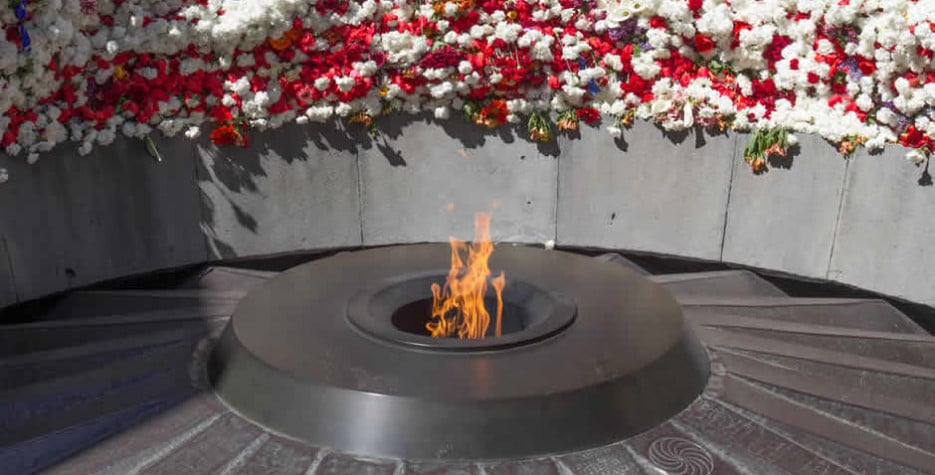When is Armenian Genocide Memorial Day?
Genocide Memorial Day ('Mets Yegherrni zoheri hishataki') in Armenia is a public holiday on April 24th.
Known as Armenian Martyrs Day, this day honours the memory of victims of persecution that began on April 24th 1915.
History of Armenian Genocide Memorial Day
The date of April 24th commemorates the deportation of over 250 Armenian intellectuals on April 24th 1915 from Constantinople. This event was seen as the start of the killing of 1.5 million Armenians.
From the 15th century, Armenia had been part of the Ottoman Empire. The Armenian community flourished and grew across the Ottoman Empire and was sizeable by the time most of modern-day Armenia came under Russian rule in the 19th century.
The Ottomans entered World War I on the side of the Germans and the Austro-Hungarian Empire in 1914. The religious authorities declared a holy war against all Christians except their allies. This was bad news for the Christian Armenians, with the Turkish government viewing the Armenian population as the enemy.
This led to the persecution and killings of the Armenians. By the end of the persecution in 1923, it is estimated that less than 400,000 Armenians remained in Turkey from a previous population of over two million.
On Genocide Memorial Day, thousands of Armenians gather at the Tsitsernakaberd Genocide Memorial to commemorate the victims of the genocide and lay flowers at the eternal flame.
The construction of the memorial began after the 1965 Yerevan demonstrations during which one hundred thousand people demonstrated in Yerevan for 24 hours to commemorate the 50th anniversary of the 1915 deportations. They demanded the Soviet authorities officially recognise it as a genocide.
In 1988, Armenia formally adopted April 24th as a public day of commemoration.
Turkey strongly denies that the persecution was a genocide. To date, the governments of 29 countries have recognised the events of 1915 as a genocide.


